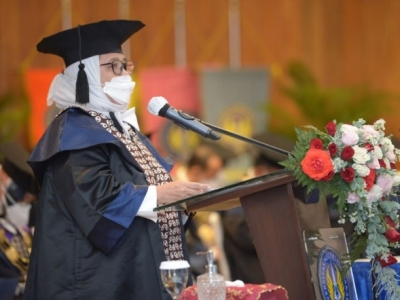WORK-BASED LEARNING IS IMPORTANT FOR CAREER SKILLS

Career skills are essential to face dynamic changes in various work. Career skills consist of curiosity, perseverance, flexibility, optimism, and risk-taking. Therefore, it makes sense to place career skills as an essential aspect that needs to be instilled through learning in vocational education. Furthermore, the physical and mental experience that students get in the form of seeing, feeling, holding, and real-life working experience is a form of Tacit Knowledge that cannot be obtained through ordinary learning. The interactions between individuals and the environment in the WBL (Work-Based Learning) process can transfer knowledge from experience, so that students can adapt to face a new environment. Prof. Dr. Kokom Komariah set those statements, M.Pd as a professor in Vocational Learning at the Faculty of Engineering, Universitas Negeri Yogyakarta.
Work-Based Learning is a learning model suitable for vocational education, including the culinary field, because it can shape students' career skills, including competencies and employability skills, so work-based learning can be used as a safety net to prevent graduates from having unreliable competency skills. "This has been proven through various studies that the input of students who are processed through training and experience programs can shape the competence of students in terms of soft skills and hard skills, making young adults have a strong advantage in the job market," said Kokom.
The culinary field requires complex competencies, not skills that are limited to the ability to operate tools, but to the appreciation of the values of work itself, something that is rather difficult to achieve for graduates who do not have experience. The selection of work-based learning models for mastering competencies in the field of Catering from ancient times to the present remains relevant through internships as the oldest learning process in the world, where to master specific competencies, one has to be curious about a teacher until that competency is obtained. It is proven that students who practice industry in five-star hotels experience an increase in their ability in preparing menus, using equipment, sanitation and work safety, using cooking methods, and serving, with an average increase of 19%.
The hospitality internship program impacts the improvement of the soft skills of polytechnic students. The same thing was also found in the implementation of the internship program in Japan for UNY's Culinary students. The internship program has a positive impact on the development of student work competencies which include aspects of student knowledge, attitudes, and skills. The content of knowledge gained by students in the internship program includes knowledge of Japanese culture, work procedures, food production, sanitation and hygiene, quality control, work ethic, technology, and mass production. Thus, it can be concluded that work-based learning can produce career skills in which it is related to aspects of graduate competence in terms of hard skills and aspects of employability skills, including work characteristics that graduates in life and careers very much need. (Dedy, Tj.Lak)

